A home equity agreement or investment (HEA or HEI) is a unique strategy to leverage the equity you have in your home instead of taking on more debt. Although many people don’t know about them, home equity sharing companies give you a lump sum — often up to $500,000 — with almost no upfront costs in exchange for a share of your home’s future value. Plus, you can use the money for a variety of reasons, like growing your real estate business, investing in more properties, improving your home, or paying off debt.
We saved you some time finding the right option — here are our top picks for the best home equity sharing companies.
Visit Point
With Point’s HEI program, you can get up to 20% of your home’s value in a lump sum within just a few weeks, thanks to its particularly quick and easy qualification and funding process. Plus, Point is one of the very few home equity agreement companies that will fund HEIs on investment properties, second homes, and properties owned by an LLC.
This makes it especially great for real estate professionals, investors, and for recommending to clients who invest in real estate. In fact, using an HEI is a great strategy for buying multiple rental properties.
Visit Hometap
There are so many reasons why Hometap is consistently chosen as one of the best home equity sharing companies. Its biggest standout feature is the Home Equity Dashboard, which homeowners can visit at any time. It includes a current home value estimate (updated every 90 days), the current costs of your Hometap Share, and interactive forecasting tools for up to 10 years.
Since the final costs of Hometap’s home equity investment (HEI) depend on multiple factors, having this data available in the dashboard can help you decide when the best time to sell your home or settle the payment is. This is ideal for homeowners and professionals who want to make the wisest short and long-term financial decisions.
Visit Unlock
Unlock is an online real estate financing resource that is known as one of the best home equity agreement companies. To qualify for its home equity agreement (HEA), you only need a credit score of 500, and there are no income requirements, no DTI requirements, and no age requirements.
Plus, Unlock has the highest ratings of all the home equity agreement companies on this list. While Point comes close, Unlock has an A+ rating with the Better Business Bureau and a 4.7 rating on Trustpilot.
Visit Splitero
Although there are many reasons why Splitero makes our list of the best home equity sharing companies, its most unique feature is the “Maturity Match.” This matches your home equity agreement with your existing or primary mortgage timeline, which means your HEI won’t be due before your mortgage.
Splitero also doesn’t charge any fees for repurchasing early, so this feature gives you plenty of flexibility to manage your finances wisely. Plus, it is one of only two companies we found with zero restrictions on what you do with the money.
Visit Unison
Unison is one of the most well-known and highly respected funding companies on our list, even though its home equity sharing agreement is relatively new. Its HEA is also closely tied to Unison’s equity sharing home loan, although they are separate products. With its equity sharing agreement, you can get up to 15% or $500,000 of your home’s value in cash.
While this program has a higher credit score requirement than most, the other eligibility requirements are flexible. In fact, many of its terms can be adjusted to all unique situations — and since Unison’s application process doesn’t affect your credit score, you can get started with no risk and potentially get a customized solution. Ultimately, it is one of the best home equity sharing companies because of its strong reputation, reputable history, and wide availability all over the country.
Visit EquityChoice
Since home equity sharing is based on the future value of your home, there are typically a lot of unknowns about the final value of your home and the final exact costs. If you want to have a little more predictability, EquityChoice is an ideal option because it offers a “shared appreciation mortgage” with a fixed below-market interest rate.
Like the other options, there are no monthly payments and little to no upfront costs. However, when you sell your home, your final costs will be based on the amount you borrowed, a share of the home’s appreciation, and a fixed interest rate that is typically 4-8% less than current interest rates. This EquityChoice program is slightly different from other home equity agreement companies, but a great option for those who want as few unknowns as possible.
At The Close, our methodology is to provide real estate professionals with accurate, understandable information to help them grow their businesses. To help you sort through the top home equity agreement companies, our team of real estate experts, writers, and researchers conducted detailed research. We evaluated each company’s offers with real estate agents and brokers in mind.
Our criteria for the best home equity investment companies include:
Home equity investment companies offer an unconventional way to take advantage of the value in your current home. In fact, many people don’t know that these programs exist!
For real estate agents, the ability to get a lump sum with minimal upfront costs could help grow your business or improve your home or an investment property. But just like with every transaction, you need to do your due diligence and make sure you fully understand the potential risks and rewards.
Here are some of the most important pros and cons of working with home equity agreement companies:
The most obvious benefit of home equity sharing is being able to get a lump sum of cash, which can be used to invest in real estate, grow your business, or even pay off debt. However, there are many different options to leverage the equity in your home:

Using a home sharing equity agreement or investment can be a great idea and is a good way to leverage the value of your home’s equity. There are no monthly fees and very few upfront costs, and many HEIs have no income requirements. Of course, you should do due diligence on the risks and rewards of any financing strategy before diving in.

To be eligible for a home sharing agreement, you have to have a certain amount of equity in your home. Many home equity sharing companies also have requirements for your credit score and the type of property they fund — however, credit score and income requirements are typically much lower than other types of financing.

Home equity sharing can have both positive and negative impacts on your taxes. The money you receive isn’t taxed, since it’s considered an investment instead of income. However, you may owe additional capital gains tax when you sell your home or settle the agreement.
The post 6 Best Home Equity Sharing Companies in 2025 appeared first on The Close.
We saved you some time finding the right option — here are our top picks for the best home equity sharing companies.
- Point: Best for investment property owners
- Hometap: Best for tracking your home equity investment
- Unlock: Best for low credit scores or unconventional income
- Splitero: Most flexible timeline
- Unison: Most widely available
- EquityChoice: Most predictable interest rates
The Close’s top picks for the best home equity sharing companies
| Home Equity Sharing Company | Home Equity Investment (HEI) Terms | Availability | Minimum credit score |
|---|---|---|---|
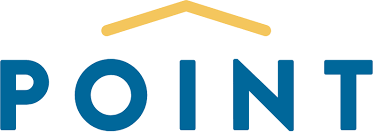
|
| 25 states + D.C. | 500 |
| Visit Point | |||

|
| 17 states + D.C. | 500 |
| Visit Hometap | |||
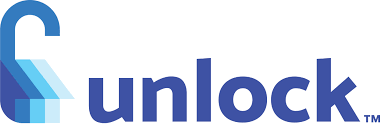
|
| 19 states | 500 |
| Visit Unlock | |||
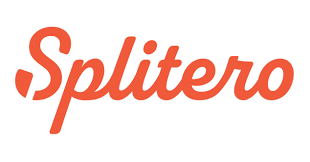
|
| 13 states | 500 |
| Visit Splitero | |||

|
| 29 states + D.C. | 680 |
| Visit Unison | |||
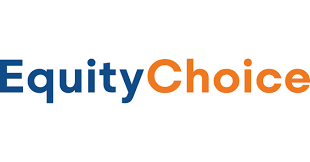
|
| 19 states | 680 |
| Visit EquityChoice |
Point: Best for investment property owners

| |
|---|---|
Pros
| Cons
|
Terms
| Eligibility
|
Visit Point
- Available in 25 states + D.C.: Arizona, California, Colorado, Connecticut, Florida, Georgia, Hawaii, Illinois, Indiana, Maryland, Michigan, Minnesota, Missouri, Nevada, New Jersey, New York, North Carolina, Ohio, Oregon, Pennsylvania, South Carolina, Tennessee, Utah, Virginia, Washington, and Washington, D.C.
With Point’s HEI program, you can get up to 20% of your home’s value in a lump sum within just a few weeks, thanks to its particularly quick and easy qualification and funding process. Plus, Point is one of the very few home equity agreement companies that will fund HEIs on investment properties, second homes, and properties owned by an LLC.
This makes it especially great for real estate professionals, investors, and for recommending to clients who invest in real estate. In fact, using an HEI is a great strategy for buying multiple rental properties.
Hometap: Best for tracking your investment

| |
|---|---|
Pros
| Cons
|
Terms
| Eligibility
|
Visit Hometap
- Available in 17 states + D.C.: Arizona, California, Florida, Indiana, Michigan, Minnesota, Missouri, Nevada, New York, New Jersey, Ohio, Oregon, Pennsylvania, South Carolina, Utah, Virginia, Washington, and Washington, D.C.
There are so many reasons why Hometap is consistently chosen as one of the best home equity sharing companies. Its biggest standout feature is the Home Equity Dashboard, which homeowners can visit at any time. It includes a current home value estimate (updated every 90 days), the current costs of your Hometap Share, and interactive forecasting tools for up to 10 years.
Since the final costs of Hometap’s home equity investment (HEI) depend on multiple factors, having this data available in the dashboard can help you decide when the best time to sell your home or settle the payment is. This is ideal for homeowners and professionals who want to make the wisest short and long-term financial decisions.
Unlock: Lowest eligibility requirements
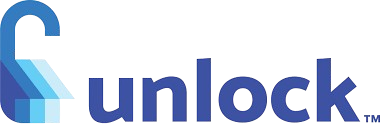
| |
|---|---|
Pros
| Cons
|
Terms
| Eligibility
|
Visit Unlock
- Available in 19 states: Arizona, California, Florida, Indiana, Kentucky, Michigan, Missouri, Nevada, New Jersey, New Mexico, North Carolina, Ohio, Oregon, Pennsylvania, South Carolina, Tennessee, Utah, Virginia, and Washington
Unlock is an online real estate financing resource that is known as one of the best home equity agreement companies. To qualify for its home equity agreement (HEA), you only need a credit score of 500, and there are no income requirements, no DTI requirements, and no age requirements.
Plus, Unlock has the highest ratings of all the home equity agreement companies on this list. While Point comes close, Unlock has an A+ rating with the Better Business Bureau and a 4.7 rating on Trustpilot.
Splitero: Most flexible timeline
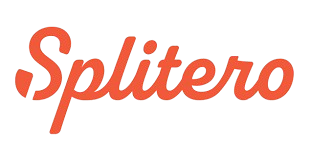
| |
|---|---|
Pros
| Cons
|
Terms
| Eligibility
|
Visit Splitero
- Available in 13 states: Arizona, California, Colorado, Florida, Nevada, Ohio, Oregon, Pennsylvania, South Carolina, Tennessee, Utah, Virginia, Washington
Although there are many reasons why Splitero makes our list of the best home equity sharing companies, its most unique feature is the “Maturity Match.” This matches your home equity agreement with your existing or primary mortgage timeline, which means your HEI won’t be due before your mortgage.
Splitero also doesn’t charge any fees for repurchasing early, so this feature gives you plenty of flexibility to manage your finances wisely. Plus, it is one of only two companies we found with zero restrictions on what you do with the money.
Unison: Most widely available

| |
|---|---|
Pros
| Cons
|
Terms
| Eligibility
|
Visit Unison
- Available in 29 states + D.C.: Arizona, California, Colorado, Delaware, Florida, Illinois, Indiana, Kansas, Kentucky, Massachusetts, Michigan, Minnesota, Missouri, Nebraska, Nevada, New Jersey, New Mexico, New York, North Carolina, Ohio, Oregon, Pennsylvania, Rhode Island, South Carolina, Tennessee, Utah, Virginia, Washington, Wisconsin, and Washington, D.C.
Unison is one of the most well-known and highly respected funding companies on our list, even though its home equity sharing agreement is relatively new. Its HEA is also closely tied to Unison’s equity sharing home loan, although they are separate products. With its equity sharing agreement, you can get up to 15% or $500,000 of your home’s value in cash.
While this program has a higher credit score requirement than most, the other eligibility requirements are flexible. In fact, many of its terms can be adjusted to all unique situations — and since Unison’s application process doesn’t affect your credit score, you can get started with no risk and potentially get a customized solution. Ultimately, it is one of the best home equity sharing companies because of its strong reputation, reputable history, and wide availability all over the country.
EquityChoice: Most predictable interest rates

| |
|---|---|
Pros
| Cons
|
Terms
| Eligibility
|
Visit EquityChoice
- Available in 19 states: Arizona, California, Colorado, Connecticut, Delaware, Georgia, Idaho, Kentucky, Louisiana, Maine, Michigan, Montana, North Carolina, New Jersey, New Mexico, Ohio, Oklahoma, Oregon, and South Carolina
Since home equity sharing is based on the future value of your home, there are typically a lot of unknowns about the final value of your home and the final exact costs. If you want to have a little more predictability, EquityChoice is an ideal option because it offers a “shared appreciation mortgage” with a fixed below-market interest rate.
Like the other options, there are no monthly payments and little to no upfront costs. However, when you sell your home, your final costs will be based on the amount you borrowed, a share of the home’s appreciation, and a fixed interest rate that is typically 4-8% less than current interest rates. This EquityChoice program is slightly different from other home equity agreement companies, but a great option for those who want as few unknowns as possible.
Methodology: How we evaluated the best home equity sharing companies
At The Close, our methodology is to provide real estate professionals with accurate, understandable information to help them grow their businesses. To help you sort through the top home equity agreement companies, our team of real estate experts, writers, and researchers conducted detailed research. We evaluated each company’s offers with real estate agents and brokers in mind.
Our criteria for the best home equity investment companies include:
- Availability: Since home equity sharing programs have limited availability, we chose home equity sharing companies that were available in a variety of states.
- Eligibility requirements: We considered each company’s requirements, prioritizing those with reasonable credit scores, types of properties, and equity requirements.
- Investment terms: We evaluated each company’s investment terms, prioritizing flexible payment terms.
- Fees and costs: Since home equity agreements can be complex, we looked for companies that clearly defined their fees.
- Company reputation: We looked at each company’s third-party reviews and reputation for transparent, seamless transactions.
Pros and cons of home equity sharing
Home equity investment companies offer an unconventional way to take advantage of the value in your current home. In fact, many people don’t know that these programs exist!
For real estate agents, the ability to get a lump sum with minimal upfront costs could help grow your business or improve your home or an investment property. But just like with every transaction, you need to do your due diligence and make sure you fully understand the potential risks and rewards.
Here are some of the most important pros and cons of working with home equity agreement companies:
| Pros | Cons |
|---|---|
|
|
Alternatives to home equity sharing
The most obvious benefit of home equity sharing is being able to get a lump sum of cash, which can be used to invest in real estate, grow your business, or even pay off debt. However, there are many different options to leverage the equity in your home:
- Home equity loan: This is like a typical loan, but it’s taken from the equity in your home. It’s a great option if you want to avoid unpredictable costs, but it increases your debt.
- Home equity line of credit (HELOC): A HELOC can give you an account and/or a credit card from the equity in your home. They are flexible and typically have lower interest rates than other options.
- Cash-out refinance: This method replaces your existing mortgage with a new one for a higher amount, but you receive the difference in cash.
- Reverse mortgage: This option is for seniors over the age of 62, but allows you to receive money from your equity in a lump sum or in monthly payments.
- Personal loan: A personal loan isn’t tied to your home or any real estate you own, but allows you to get money up front. However, interest rates on personal loans are usually higher than refinancing options.
- Hard money loan: Hard money lenders can be online companies or even personal connections. They typically have the highest interest rates and a short repayment term, but they can be extremely useful for investments.
Frequently asked questions (FAQs)
Is shared home equity a good idea?
Using a home sharing equity agreement or investment can be a great idea and is a good way to leverage the value of your home’s equity. There are no monthly fees and very few upfront costs, and many HEIs have no income requirements. Of course, you should do due diligence on the risks and rewards of any financing strategy before diving in.
Who qualifies for a home equity sharing agreement?
To be eligible for a home sharing agreement, you have to have a certain amount of equity in your home. Many home equity sharing companies also have requirements for your credit score and the type of property they fund — however, credit score and income requirements are typically much lower than other types of financing.
What are the tax implications for home equity sharing?
Home equity sharing can have both positive and negative impacts on your taxes. The money you receive isn’t taxed, since it’s considered an investment instead of income. However, you may owe additional capital gains tax when you sell your home or settle the agreement.
The post 6 Best Home Equity Sharing Companies in 2025 appeared first on The Close.
